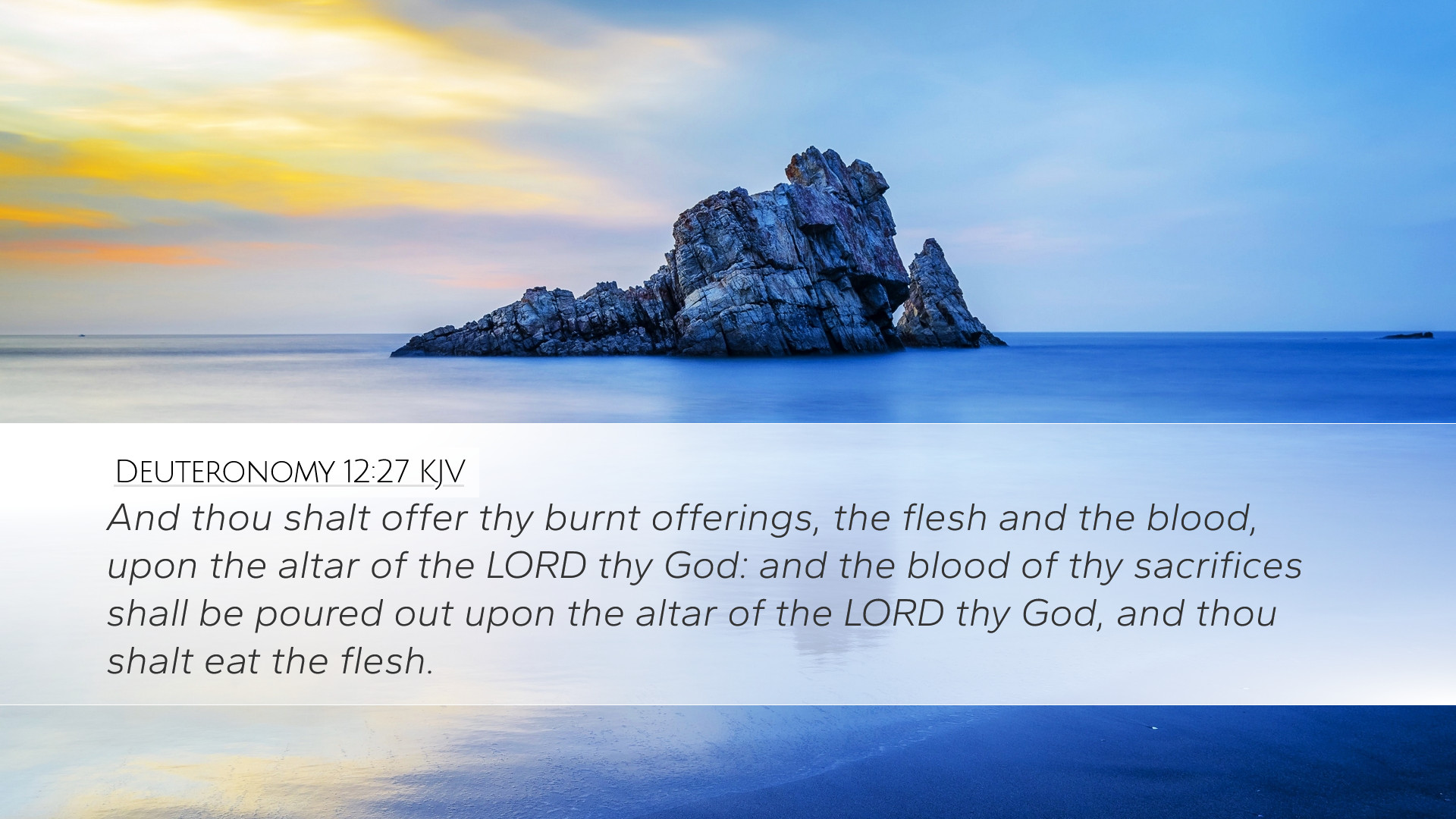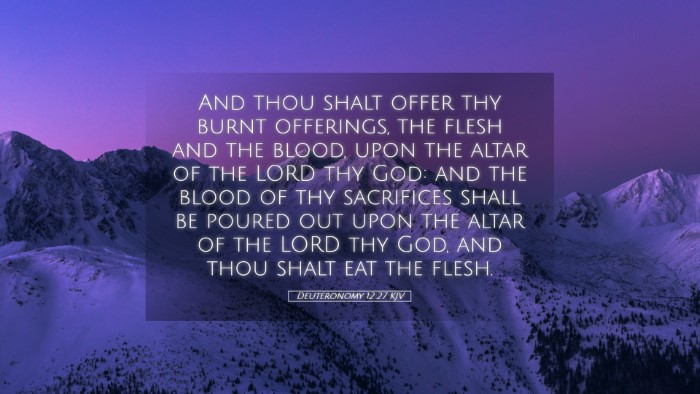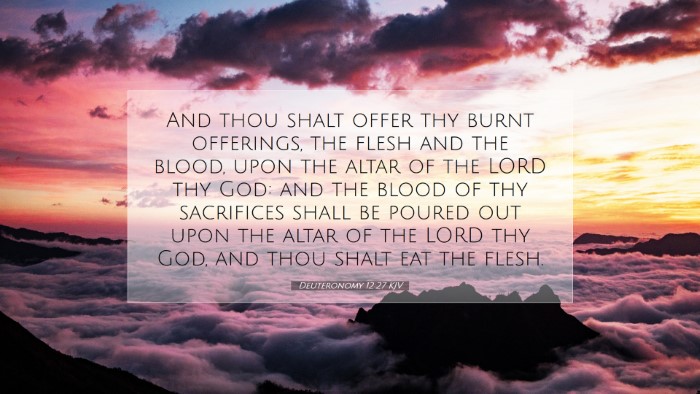Bible Commentary on Deuteronomy 12:27
Verse Text: "And thou shalt offer thy burnt offerings, the flesh and the blood, upon the altar of the Lord thy God: and the blood of thy sacrifices shall be poured out upon the altar of the Lord thy God, and thou shalt eat the flesh." (Deuteronomy 12:27)
Introduction
This verse is part of a broader discourse in Deuteronomy concerning the proper worship and sacrificial practices among the Israelites. It emphasizes the significance of sacrifices and the manner in which they should be presented to God. Through the insights of public domain commentaries, we can explore the theological implications, historical context, and practical applications of this verse.
Exegesis and Analysis
Deuteronomy 12:27 focuses on two distinct aspects of sacrificial worship: the treatment of the burnt offerings and the prescribed use of blood in sacrificial rites. The regulation highlights God’s enduring requirement for reverent and proper worship.
1. The Nature of Burnt Offerings
According to Matthew Henry, burnt offerings represent complete submission to God. The entire animal is consumed upon the altar as a symbol of total dedication and consecration. This act signifies a desire for atonement and reconciliation with God, reflecting both personal piety and communal identity.
2. Significance of Blood
Albert Barnes emphasizes the requirement of blood being poured out upon the altar as a central aspect of worship, signifying life and the serious nature of sin. Blood, in biblical terms, represents the life force that is offered back to God. This foreshadows future theological developments in the New Testament regarding Christ’s atoning sacrifice, where His blood signifies the new covenant.
3. Eating the Flesh of Sacrifices
Adam Clarke provides insight into the practice of eating the flesh of sacrificial offerings. This act was not merely a ritualistic gesture but served a dual purpose: it allowed the worshipper to share in the sacredness of the sacrifice, reinforcing community ties and fellowship among the worshippers. It is an acknowledgment of God's provision and a reminder of the communal identity of the Israelites as God’s chosen people.
Theological Implications
This verse deepens our understanding of God’s expectations for worship and sacrifice. Throughout Scripture, the concept of offering is intertwined with themes of devotion, atonement, and community.
- Devotion: Offering sacrifices signifies one's commitment to God, embodying both gratitude and reverence.
- Atonement: The blood of sacrifices underscores the seriousness of sin and the necessity of atonement, paving the way for New Testament themes of redemption.
- Community: Eating the sacrifices points to a shared relationship among worshippers, fostering unity and reinforcing their collective identity as a nation under God.
Practical Applications
The command related to sacrifices may appear distant in contemporary worship practices, yet the principles remain relevant for today's believers.
- Worship as Sacrifice: In modern contexts, we are called to adopt an attitude of worship that embodies sacrifice similar to that of the burnt offerings. Romans 12:1 invites Christians to present their bodies as living sacrifices, highlighting the concept of total devotion to God.
- Understanding Atonement: We should constantly reflect on the significance of Christ's sacrifice, understanding that His blood was shed for our atonement, offering us a new life of fellowship with God.
- Community in Worship: The act of shared sacrifices encourages communal worship, reminding us of the importance of fellowship within the body of Christ. Engaging in communal meals, like the Lord's Supper, reaffirms our bond with God and each other.
Conclusion
Deuteronomy 12:27 serves as a reminder of the reverent nature of worship and God's desire for sincere offerings from His people. The insights gleaned from various commentaries underscore the profound significance of both sacrificial practices in the Old Testament and their fulfillment in the New Testament through Christ. As modern believers, understanding and applying these principles will deepen our faith, enhance our worship practices, and foster stronger communal bonds.


